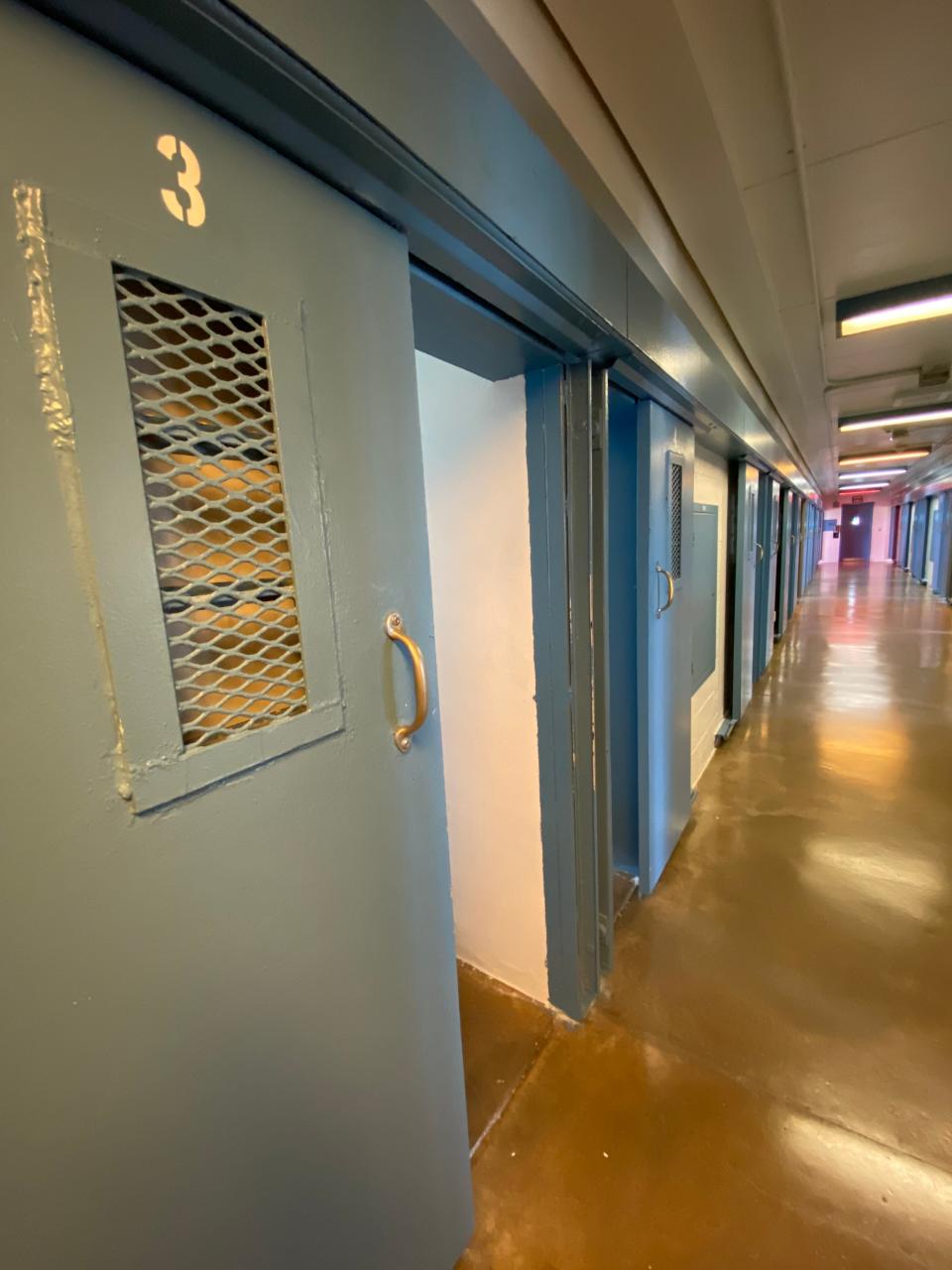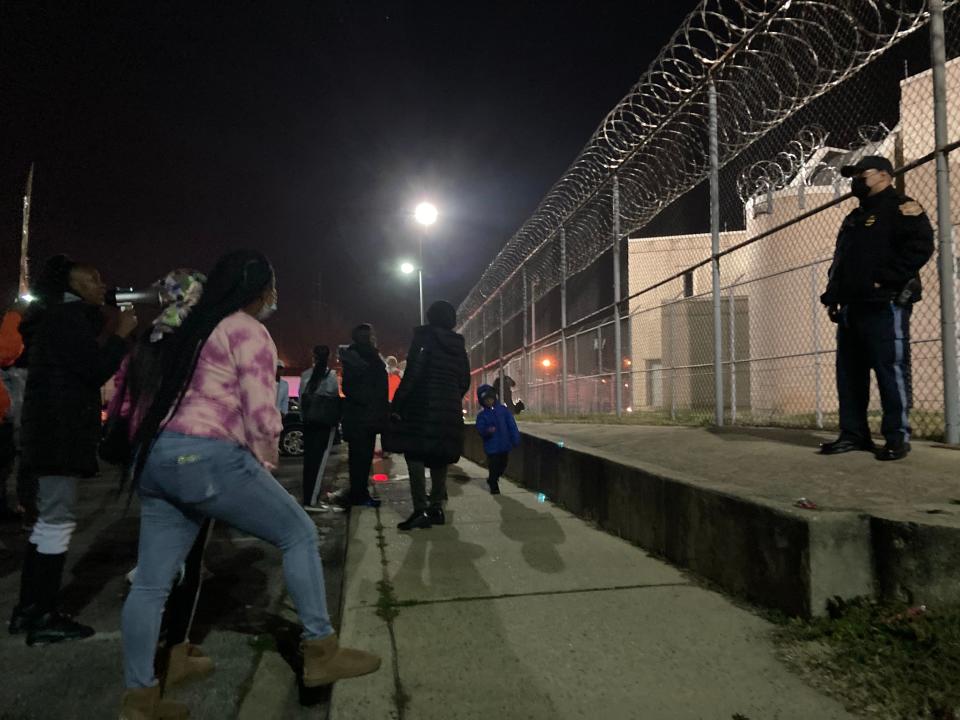Special education in Delaware prisons 'woefully deficient,' lawsuit claims
The state of Delaware systemically fails to provide legally adequate education to young people with learning disabilities inside its prison facilities, according to a federal lawsuit filed Thursday.
The lawsuit claims the program responsible for providing special education for students in Delaware prisons has been legally deficient and has failed students for years − and that officials are aware of this.
Filed by the Community Legal Aid Society, Inc., known as CLASI, which is the designated public advocate in Delaware for people with disabilities, the lawsuit paints a picture of a system that is required to provide specialized instruction but that amounts to "self-study" with students learning in literal shackles or divided from instructors by plexiglass walls.
Students who have complained in recent years have been subject to retaliation, according to the lawsuit that was filed in conjunction with attorneys from Terris, Pravlik & Millian LLP, a Washington, D.C.-based public interest law firm.
Named as defendants are leaders of the state's Department of Education and the Department of Correction, as well as state education officials charged with working with correction leaders to provide education to incarcerated students. An official for the Department of Education declined to comment. A spokesperson for the Department of Correction also declined comment.
The lawsuit seeks a court injunction to require the state to fix a myriad of problems outlined in the 98-page initial complaint.
Editor's Note: read the full complaint at the bottom of this story.
The lawsuit seeks systemic change to issues CLASI officials say they have observed while representing people with disabilities seeking to remedy their situations.
"It is disheartening that they have been told time and time again that this program is deficient, yet they do nothing," said CLASI Disabilities Law Program Project Director Marissa Band. "It is time for (the state) to make real, lasting changes."

The law
All states are required to provide special education and related services to all students with disabilities.
Those related services include individualized education programs that are crafted with respect to the students’ needs, which can include mental illness or particular learning disabilities. The programs are to be crafted with input from the student and parent or other educational representative and must be regularly reevaluated.
Those related services also include behavioral interventions and supports like counseling, as well as systems to evaluate whether a student’s disciplinary violations are a result of their disabilities.
This applies to all students with disabilities and does not end when such a person is incarcerated. The requirement continues until the end of the school year when the student reaches 22 years old and includes young people who have been sentenced or are awaiting trial.
This is particularly important because society locks up young people with a general expectation that they will not simply be punished, but instead be rehabilitated and returned to society.
Basic skills taught in grade school are a key part of surviving in society. And these are students who have an already identified need for special education services and are often the most in need of support in education.

"Without a high school education, these students are at increased risk to end up back in prison again," said Todd Gluckman, a partner at the law firm partnering with CLASI on the lawsuit.
The federal government provides funding for such education and federal law outlines requirements states must meet in providing that education. Delaware law includes similar provisions. Among several specific requirements embodied by both federal and state law is a baseline that the students have a right to education that provides "significant learning" and "confers meaningful benefit on the child with a disability that is gauged ... to their potential."
Delaware law also specifically bars educational placement decisions based on the "amount of funding" versus the needs of the student.
Shackled learning
CLASI claims the baseline requirements, as well as a myriad of other aspects of the law, are not being met by the Adult and Prison Education Resources Workgroup, known as APER. It's the division of the state's Department of Education responsible for administering the state's prison education program with the Department of Correction. Maureen Forde-Whelan is the division's director and is named as a defendant in the lawsuit.
To argue a larger point about the system, the complaint tells the story of three young people with special education needs it says were locked up in recent years, failed to receive adequate services and successfully petitioned an oversight board to acknowledge those failures.
Each of the students outlined in the lawsuit had educational disabilities identified before their imprisonment and shared similar issues with the education they received once locked inside both Howard R. Young Correctional Institution in Wilmington and James T. Vaughn Correctional Center near Smyrna.
It claims students are often made to wait unnecessarily without education, putting them closer to the cutoff date when educational services are no longer required.
It claims that required individualized education programs are focused on the agencies' perceived resources and not with consideration of the students' actual needs and provide "woefully deficient" amounts of specialized instruction. It also claims parents and students are often cut out of the development of those plans.

Once the plan is in place, the instruction that comes with it is better described as "self-study" with "occasional guidance." The amount of instruction can vary widely. The setting can also vary.
Examples listed in the lawsuit include students being taught with arms shackled to their bodies or desks. One teacher learned to write backward in order to use a plexiglass divider as a board to write on. The complaint asserts these and other restrictions are unnecessary and notes the law requires that the education be administered in the least restrictive environment possible.
The complaint claims that behavioral supports like counseling are generally unavailable. An intervention provided to one student was to redirect frustrations through working out or reading, according to the complaint. Mental health services are provided by an unrelated contractor in Delaware prisons, which the lawsuit says does not coordinate with the students' education plans.
The lack of these supports and interventions, along with inadequate education, commonly leads to students disengaging and exhibiting "problem behavior." In prison, that behavior is met with punishment that is confinement to a more restrictive part of the prison, where education is generally less available and more restricted, the lawsuit states.
Because of this harmful cycle, the law requires the education provider to consider whether behavior that led to punishment was a manifestation of the student's disability or a failure to implement the planned education program, and if so, take steps to address the problem. These reviews do not occur in Delaware facilities, the lawsuit states.
Problems known to officials
CLASI has filed and litigated complaints on behalf of the three individuals outlined in the lawsuit. In each case, an oversight board found that the education provided was insufficient to meet the requirements of the law. The lawsuit is broader and seeks systemic change, not just relief for those individuals.
It does claim that state education officials withheld paperwork from lawyers and parents and in one case, ended small-group learning sessions for one student in retaliation for the complaints.
It also excerpts portions of the state's response to each complaint to show that officials know the service they are providing is insufficient. In hearings, officials acknowledged deficiencies and stated that education plans are built considering available resources, not the students' actual needs, according to hearings excerpts included in the lawsuit. It also excerpts larger reports on the system dating back to 1989 that acknowledge deficiencies in complying with relevant laws.
It claims the required fixes outlined in those reports as well as the findings in the three individuals' cases have not been implemented. CLASI attorneys have also sought reforms through communication with state officials to no avail, the lawsuit states.
It asks for a court to issue an injunction ordering those remedies by developing new policies and procedures to ensure students receive the education required by law.
The lawsuit is one of multiple legal challenges seeking systemic reforms in Delaware prisons. Those include:
Litigation targeting claims of excessive force against prisoners
Litigation targeting deficient healthcare for Delaware prisoners
Litigation seeking voting rights for people in Delaware prison
Contact Xerxes Wilson at (302) 324-2787 or xwilson@delawareonline.com
This article originally appeared on Delaware News Journal: Delaware failing special education students in prison: Lawsuit

